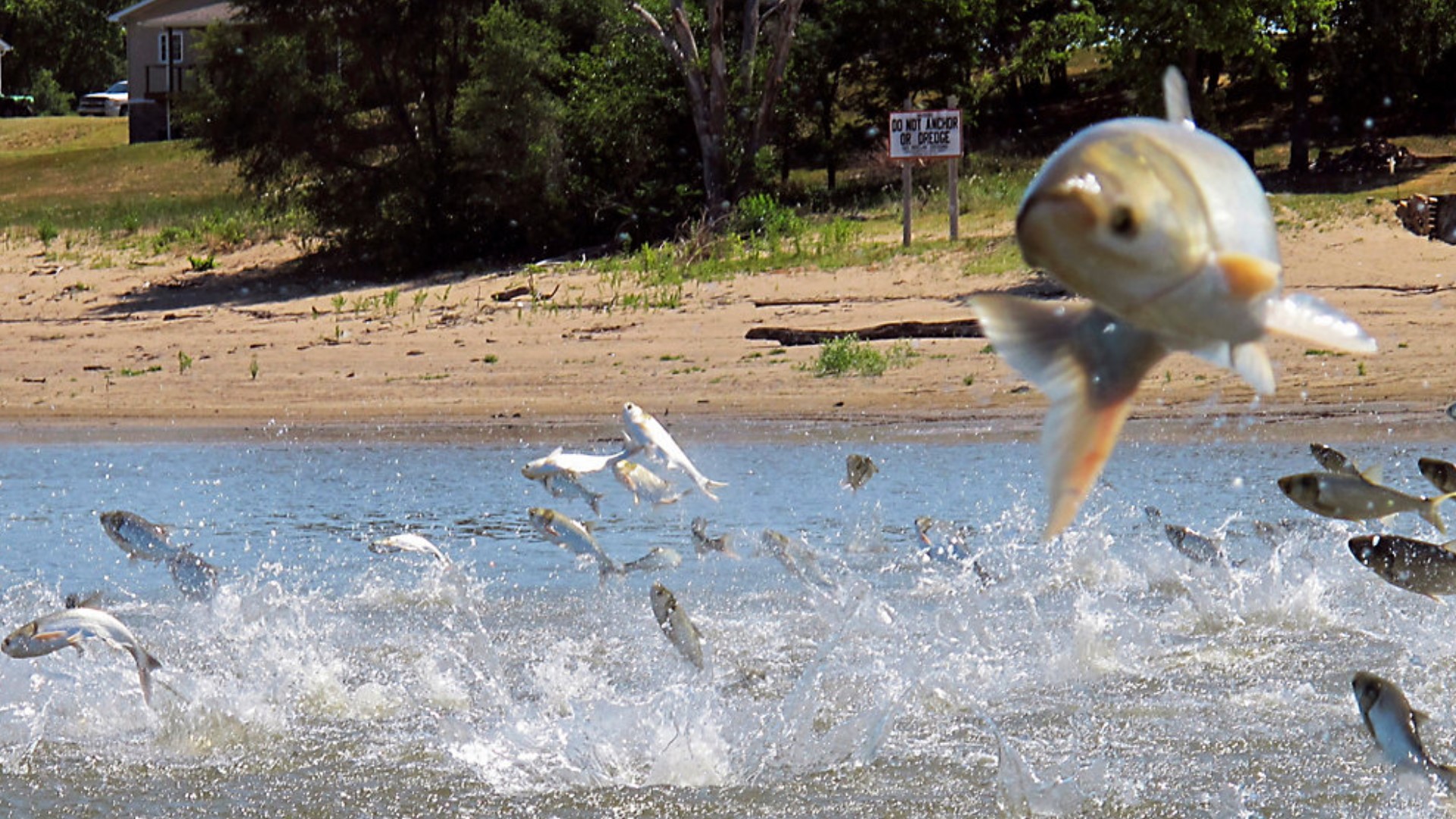ST. LOUIS — Cod, catfish and shrimp will find their way to St. Louisans' plates as fish fry season officially kicks off on Feb. 14.
However, a fish not often offered on menus is becoming a larger problem throughout Missouri and down the Mississippi River.
Carp, introduced to Missouri from Asia in the late 1800s, pose a severe threat to aquatic ecosystems throughout the state and nation, according to the Missouri Department of Conservation. The fish are known to eat the eggs of native fish, outcompete them in food and space, and can be very destructive to native fisheries. Experts at the U.S. Geological Survey are extremely concerned if carp find their way to the Great Lakes, where they would negatively affect the $7 billion-a-year fishing industry.
A retired natural resources professor hatched a novel idea to combat the growing problem: Eat them.
Mark Morgan from the University of Missouri launched "Eat MO Carp" in 2015. The project's original goal was to market carp to Missouri residents, restaurants and supermarkets to address what some have called an "environmental ticking timebomb."
Missourians tend to have an automatic distaste when carp is mentioned. The invasive fish has gotten a bad culinary reputation due to their bottom-feeder status, the difficulty of butchering and their off-putting name. Their taste, however, is more appealing than some may think. Morgan has run multiple blind taste tests where people have chosen carp over catfish.
"People are very curious about (eating) carp," Morgan said. "Even though it sounds bad initially, I always run out of carp chili every single time. I never have to carry any of it home because people come back for seconds and thirds."
State and federal conservation agencies have removed thousands of carp from the Mississippi River, but the fish are often discarded and trashed. Morgan soon saw an opportunity to use those fish to serve those most in need: the world's most malnourished communities.
Research has previously shown carp to be incredibly nutritious, with high proportions of protein, omega-3 fatty acids, all essential amino acids and other macro- and micro-nutrients. The program found large success in shipping 300 pounds of smoked carp filets to Haiti. Morgan, however, wanted a more streamlined process for process and then shipping the fish out to those who needed it most. The solution lay in not fileting the fish but turning it into powder.
"The powder, to me, is like the holy grail," Morgan said. "It's a superfood in disguise … It's low-moisture, it doesn't need refrigeration or freezing, it's easy to ship and transport and you can mix it with other food products."
When international communities in need, like Haiti or Morgan's new focus of Nigeria, get food aid, it often comes in abundant but nutrient-thin rice, barley and wheat. By mixing in the high protein and high nutrient carp powder into already existing foods, Eat MO Carp hopes to help properly feed those going hungry.
The University of Missouri's "Mizzou Give Direct" is collecting donations for Morgan's "Eat MO Carp" campaign, funding Morgan hopes to use to work with a Missouri-based carp processing plant to expand the carp powder to more communities in need across the world. $2,712 of the program's $25,000 goal has been raised so far.
"I don't anticipate moving away from this anytime soon," Morgan said. "This is like the fish that swallowed me."
Top St. Louis headlines
Get the latest news and details throughout the St. Louis area from 5 On Your Side broadcasts here.

